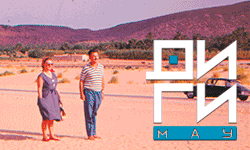Thematic exhibition
Zdravko Pečar │ (SELF)PORTRAITS
 Opening: Saturday, May 25 2024, at 1 p.m.
Opening: Saturday, May 25 2024, at 1 p.m.
Opening address by Professor Milan Ristović, PhD, and exhibition author, Assistant Professor Nemanja Radonjić, PhD.
Catalogue editors and exhibition curators
Dr. Nemanja Radonjić, Emilia Epstein, Ana Knežević
Curatorial Statement
Through the exhibition “Zdravko Pečar – (SELF)PORTRAITS” we offer several perspectives on the kaleidoscopic personality of Zdravko Pečar, encompassing his life, work, and enduring legacy. This exhibition acts as a polyptych, unveiling his journey through pivotal historical events, the zeitgeist of his era, revolutionary endeavours, diplomatic engagements, scholarly research and publications, photographic archives, printed records, and other significant documentation. It showcases his dynamic actions, which at times yield ambivalent outcomes and consequences, yet always resonate with vitality.
Approaching Zdravko Pečar from a certain temporal remove, especially bearing in mind the specificities of the Yugoslav and Non-Aligned framework within which he laboured, it was impossible for us to resist the impression that through the exhibition process we are dealing with a man who has almost stepped into the realm of fiction and become a character from a book – a protagonist of his own life. And yet, we remain acutely aware of his tangible presence as a flesh-andblood individual who continues to resonate within the landscapes of memory, even today. Zdravko Pečar emerges as a commanding figure, guided by the political ideals of his era, yet never unquestioningly. His critical perspectives, rooted in anti-colonialism and a distinctive brand of humanism, particularly directed towards Africa during his time, continue to echo through his published works, books, journalism, the archival materials he amassed, and the library he meticulously curated. Pečar's formidable personality and insatiable curiosity as he delved into his pursuits amidst a vast array of acquaintances from both his personal and broader social spheres, to a certain extent make our considerations appear in a vacuum of sorts. Many of these individuals, in their own unique ways and at various junctures of his life, bore witness to and bolstered the unfettered expression of his remarkable energy and enthusiasm.
We had in mind the professional, scientific, historical, investigative, and media ways in which he, unsuccessfully like Yugoslavia itself, tried to organise and synthesise knowledge about Africa, but also the strong potential of the Museum of African Art in Belgrade as an institution whose establishment entrusted his vision upon us. At the same time, encouraged by his life and work, and above all by his research efforts, achieved results and the establishment of MAU itself – a unique niche in which today, almost half a century later, Africa and the Middle East can be talked, thought and written about in many ways – it seems natural to us to respond to this invitation inscribed into the very genealogy of the institution, that is, not to give up on the idea of establishing a centre for Africa and the Middle East, which would, as a research nucleus, strengthen the cooperation between this Museum and the Faculty of Philosophy of the University of Belgrade, where Zdravko Pečar himself graduated in 1951 and received his doctorate in 1964.
In essence, the exhibition held in 2024, commemorating thirty years since the passing of Zdravko Pečar, serves as the driving force behind recalling and honouring the life and contributions of MAU's founder. Simultaneously, this exhibition serves as an educational platform in the present moment, underscoring in the public sphere the significance of Zdravko Pečar as a multifaceted figure: a revolutionary, partisan, (un)official ambassador, and historian both within and beyond the confines of academia. For us as a curatorial team, this exhibition serves as both driving force and inspiration. It provides the foundation upon which we can further delve into African and Middle Eastern topics, fostering ongoing work, research, and contemplation within this space. In doing so, we aim to broaden the horizons of curatorial, research, and exhibition practices, operating seamlessly within and beyond traditional museum, exhibition, and academic frameworks.
Emilia Epstein, Ana Knežević, and Nemanja Radonjić
















